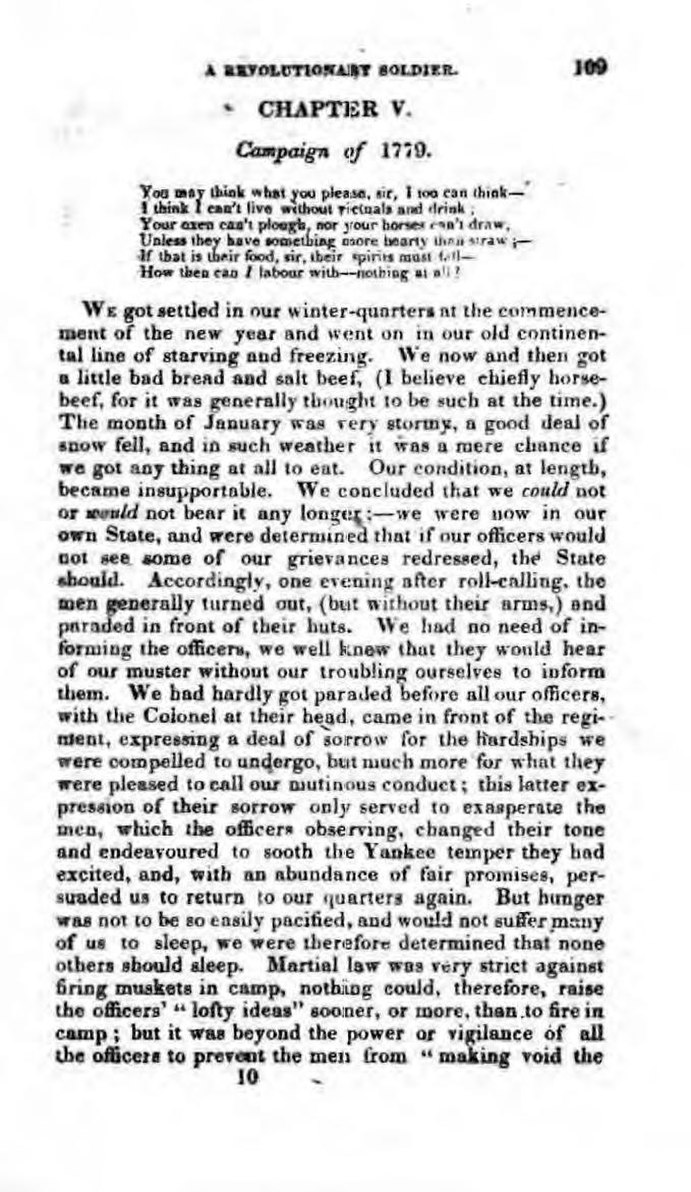CHAPTER V.
Campaign of 1779.
You may think what you please, sir, I too can think—
I think I can't live without victuals and drink;
Your oxen can't plough, nor your horses can't draw,
Unless they have something more hearty than straw;—
If that is their food, sir, their spirits must fall—
How then can I labour with—nothing at all?
We got settled in our winter-quarters at the commencement of the new year and went on in our old continental line of starving and freezing. We now and then got a little bad bread and salt beef, (I believe chiefly horse-beef, for it was generally thought to be such at the time.) The month of January was very stormy, a good deal of snow fell, and in such weather it was a mere chance if we got any thing at all to eat. Our condition, at length, became insupportable. We concluded that we could not or would not bear it any longer;—we were now in our own State, and were determined that if our officers would not see some of our grievances redressed, the State should. Accordingly, one evening after roll-calling, the men generally turned out, (but without their arms,) and paraded in front of their huts. We had no need of informing the officers, we well knew that they would hear of our muster without our troubling ourselves to inform them. We had hardly got paraded before all our officers, with the Colonel at their head, came in front of the regiment, expressing a deal of sorrow for the hardships we were compelled to undergo, but much more for what they were pleased to call our mutinous conduct; this latter expression of their sorrow only served to exasperate the men, which the officers observing, changed their tone and endeavoured to sooth the Yankee temper they had excited, and, with an abundance of fair promises, persuaded us to return to our quarters again. But hunger was not to be so easily pacified, and would not suffer many of us to sleep, we were therefore determined that none others should sleep. Martial law was very strict against firing muskets in camp, nothing could, therefore, raise the officers' "lofty ideas" sooner, or more, than to fire in camp; but it was beyond the power or vigilance of all the officers to prevent the men from "making void the
